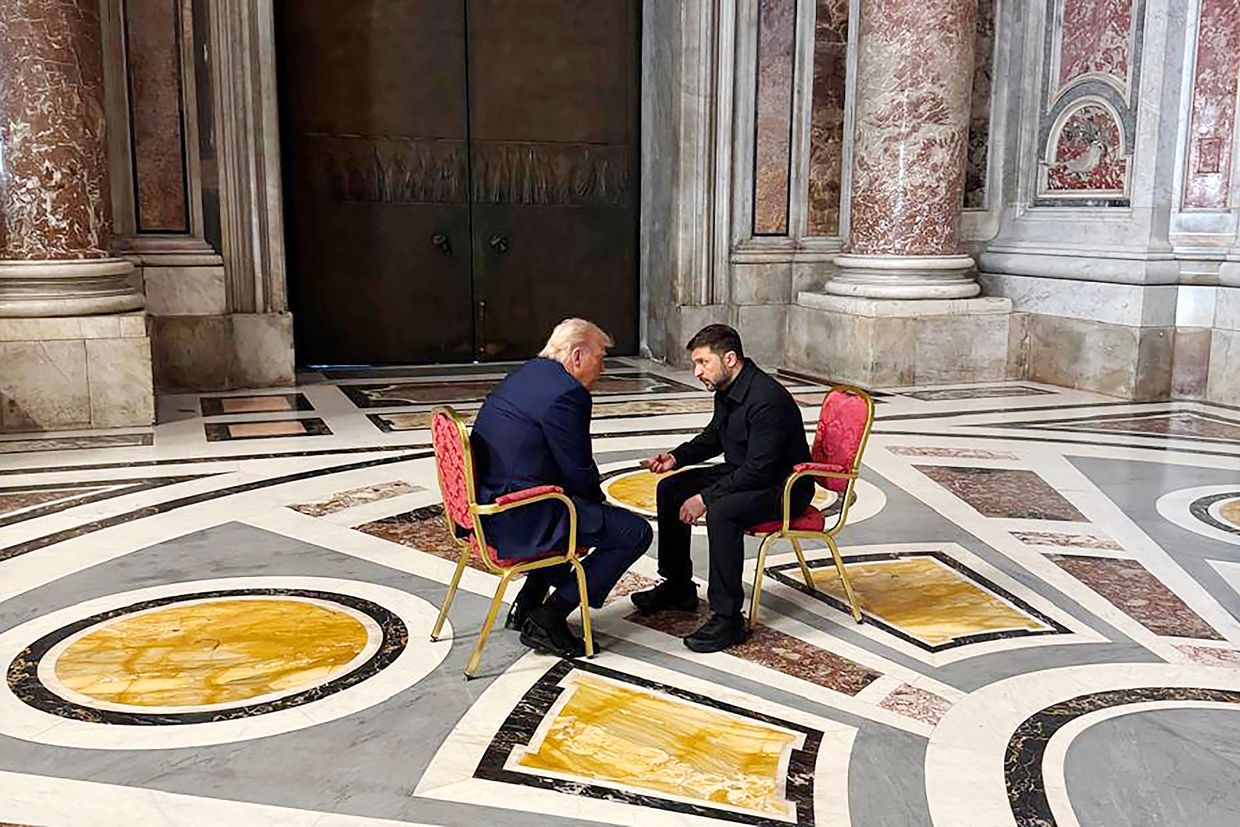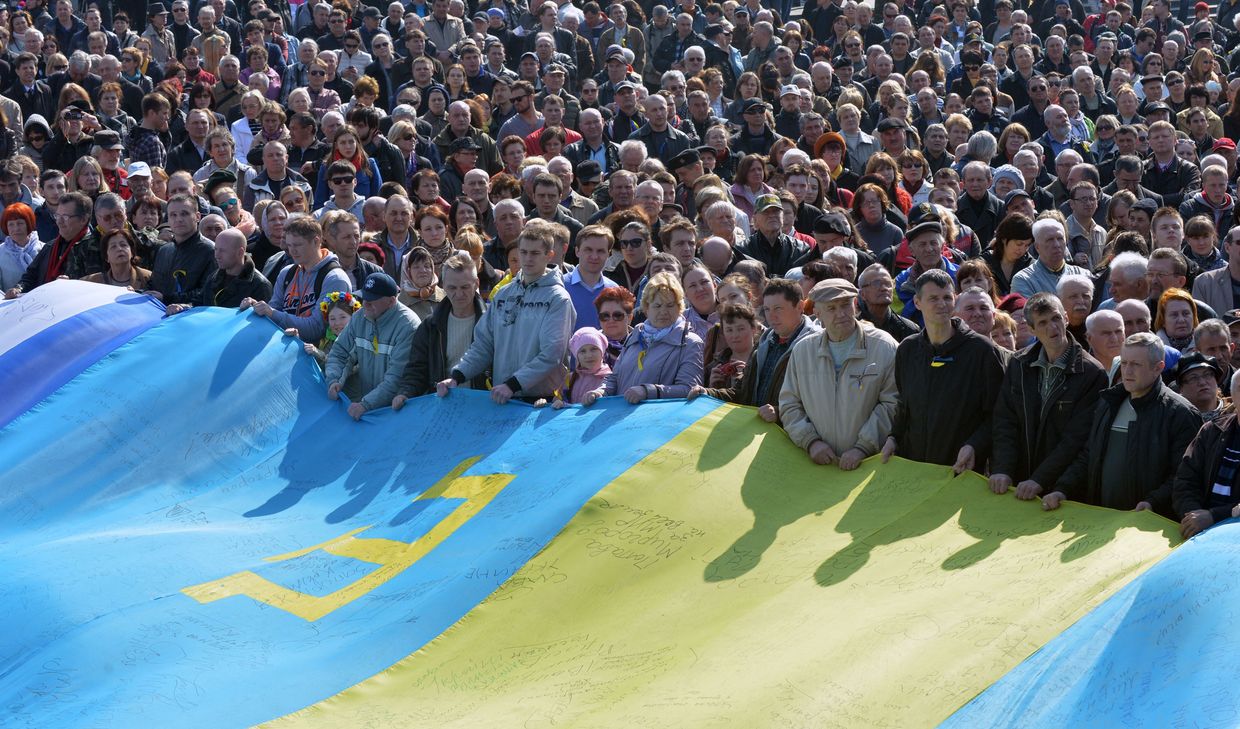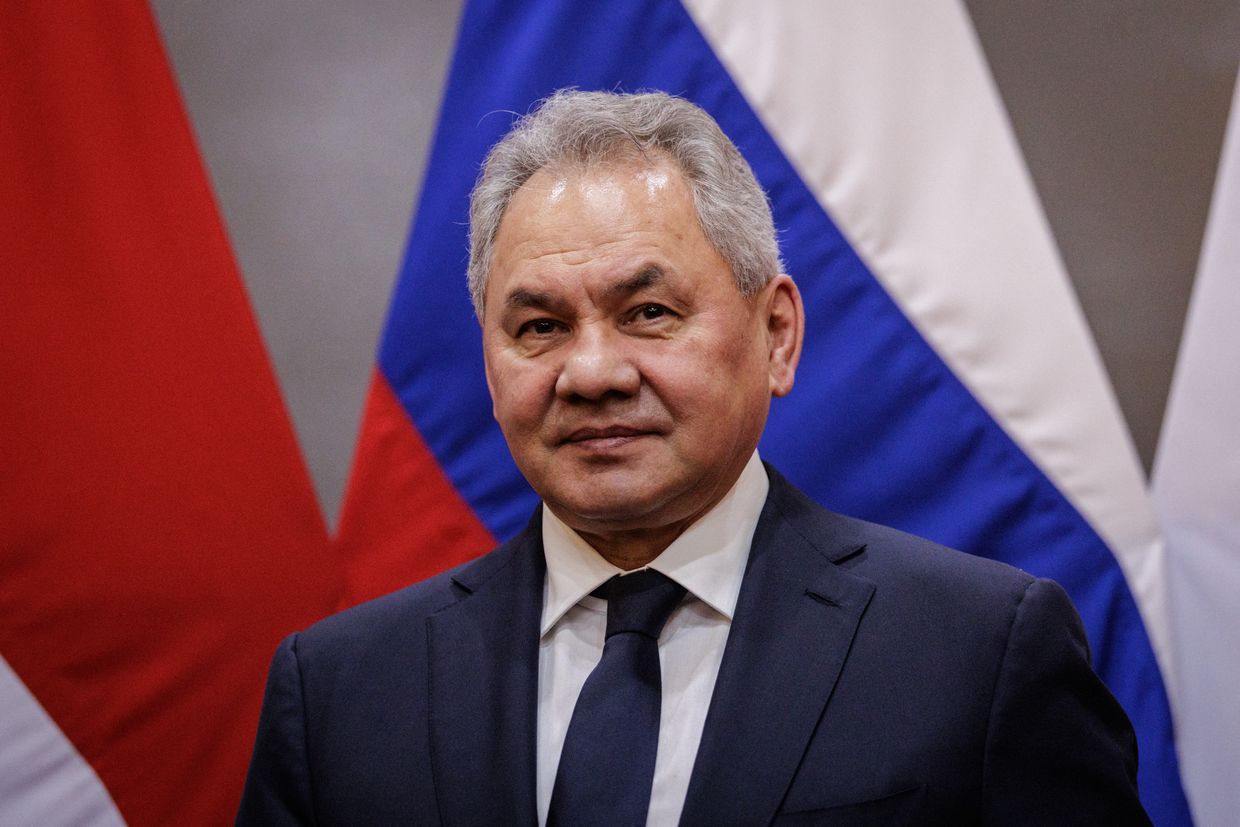U.S. President Donald Trump has once again sent ripples of concern around Ukraine, this time by saying he "thinks" President Volodymyr Zelensky is ready to give up occupied Crimea as part of a peace deal to end Russia's full-scale invasion.
Trump's comments, if taken at face value, suggest Zelensky is aligned with the U.S., which is reportedly considering a de jure recognition of Russia's control over Crimea as part of a potential peace deal, and de facto control over other occupied territories.
This would be a major concession and go against all previous Ukrainian statements, as Kyiv has repeatedly ruled out ceding its territory as part of any peace agreement.
At the time of writing, Kyiv had not issued an official statement to refute Trump's statement. When asked for comment by the Kyiv Independent, the President's Office insisted it "did not comment on opinions."
Zelensky once again faces a difficult balancing act — the meeting with Trump at the Vatican on April 26 appears to have reset relations between the two leaders after the disastrous Oval Office showdown in February, valuable political capital that could be squandered if Kyiv is seen to publicly disagree with, or refute the latest comments from the U.S. president.
In Ukraine, in the absence of a rebuttal, the hope is that Trump's comments are not an accurate reflection of anything Zelensky said himself, and Ukrainian political analysts who spoke to the Kyiv Independent urged caution in how the U.S. president's words were interpreted.
"This is not a statement. It is his feeling, his perception of the conversation with Zelensky," Volodymyr Fesenko, a political analyst, said.
"I don't know what exactly Zelensky said (during the Vatican meeting), but I am convinced that Ukraine’s official position is expressed by Zelensky himself (and not by Trump)."

In Crimea itself, and despite more than a decade of the Kremlin's attempts to "russify" its population, there are Ukrainians who have even more riding on Trump's comments than those living elsewhere.
A Crimean Tatar activist currently living in Crimea, who spoke on condition of anonymity due to security concerns, dismissed Trump's comments as his statements "can be the opposite… on any given day."
"And so we are following President Zelensky, his stance and stamina," she told the Kyiv Independent.
"We believe that (Zelensky) will tell the world that there are people in Crimea who remain patriots and citizens of their country. In this regard, we are more interested in our state and our president's position (than Trump's)," she added.
"There will be no talk of Ukraine recognizing, in a legal sense, the annexation of Crimea. That will definitely not happen."
A representative of Crimean Combat Seagulls, a Ukrainian resistance movement active on the peninsula, who spoke on condition of anonymity due to security concerns, told the Kyiv Independent that any talk of recognizing Crimea as Russian would be "a blow to those who have been living in fear for 11 years."
"People disappear, they are tortured, deported, and prosecuted for posts on social media," they said.
"And now we are told all this is a 'reality' we should accept? No. People cannot be reshaped by a diplomatic decision. Crimea is not a currency. Crimea is people. And these people will not give up," they added.
Among the wider population, since the start of the full-scale Russian invasion, polls have shown that Ukrainians largely refuse to give up Crimea.
In March 2022, 80% of respondents in a poll by the independent sociological group Rating said Ukraine should do everything possible to bring Crimea — and the Russian-occupied eastern Donbas — back under Ukraine’s control.
While recent polling shows the number of Ukrainians willing to make some territorial concessions to end the war has risen, a majority — 51% — still oppose the idea under any circumstances.
Further, polling has not specified between de facto and de jure control, with de jure likely to be more heavily opposed than de facto.

This would come into play in a hugely consequential way if Ukraine was somehow forced to recognize Crimea as Russian as part of any peace deal — the only way Ukraine can do this officially would be to hold a referendum on the issue and put the vote to the people.
"This is our red line," Fesenko said, adding: "There will be no talk of Ukraine recognizing, in a legal sense, the annexation of Crimea. That will definitely not happen."
Opposition to giving up Crimea crosses party lines in Ukraine, though that's not to say there is unity in how Zelensky's role is perceived.
“I don’t think Zelensky is ready to cede Crimea in any legislative way since it contradicts our (Ukraine’s) Constitution. The president cannot make such statements, even if he wanted to make such statements,” Mykola Kniazhytskyi, an opposition lawmaker from the European Solidarity party, told the Kyiv Independent.
"I think that Ukraine’s position is generally a difficult one," he went on, adding that "Zelensky's position is difficult only because he wants to hold on to power at any cost and, possibly, win the elections if they take place."
But with elections — which could only realistically take place after the war ends and martial law is lifted — still a distant prospect, Yevhen Mahda, a Ukrainian political analyst, told the Kyiv Independent that Zelensky doesn't have much to worry about domestically.
"I don't see any major difficulties for Zelensky. As long as martial law is in place, what does he have to fear?" he said.
What is of concern, according to Mahda, is the gulf between the things Trump says and the realities in Ukraine, and Zelensky's best option might just be to sit it out and wait for the U.S. president to come round to his way of thinking.
"It is much more dangerous for Zelensky to agree to what Trump offers than to maneuver," he said.
"Trump is simply living in his paradigm of a businessman who has decided that it will all work out. This is not the case, and it will not work that way. He will have to take into account the factors that are, frankly, quite difficult at the moment."











